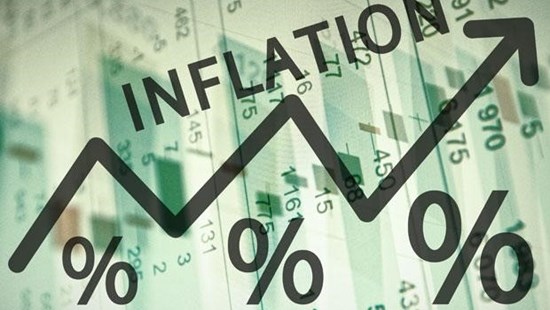
This week’s update comes from Robin Newbould, Group Head of Execution, Advisory and Precious Metals.
Markets last week were quite volatile as investors considered the consequences of a potential rise in US inflation. April 2021 statistics for US consumer prices soared as post-lockdown demand and shortages of a wide range of goods, from used cars to home furnishings, drove up prices.
The news unsettled financial markets as the threat of rising prices could force central banks to abandon zero-interest rate policies and reduce their relaxed monetary policies that have helped stoke share prices to all-time highs.
The Consumer Price Index (CPI), which measures the prices consumers pay for goods and services, including clothes, groceries, restaurant meals, recreational activities and vehicles, was seen at 4.2% higher during the month of April compared to 2020 (US Bureau of Labor Statistics). This was the biggest 12 month increase since September 2008, which was the height of the financial crisis. The figure was significantly higher than economists had predicted, even taking into account the fact that the 2020 number being compared against was low, owing to the initial effects of the global pandemic.
Why?
Perhaps President Biden’s economic stimulus package has pumped money into the economy just as it reopens from coronavirus lockdown measures. Perhaps vaccination freedoms have created fresh demand for goods and services that have outpaced supply which is still recovering from the effects of lockdowns. Whatever the reasons, there are reports from across the US of shortages of a broad range of goods: from lumber and steel to tomato ketchup! Which reminds me to make note that inflation can have a damaging effect on households, particularly when wages do not increase at the same rate as goods:
"… meat product prices have grown 16% and bread and grain prices have jumped 68%. It’s time for Biden and Democrats to open their eyes, stand up for working class families and realize their reckless spending is ruining our economy and devastating America’s low and fixed-income families, like mine, growing up.”
https://www.rickscott.senate.gov/sen-rick-scott-bidens-inflation-crisis-here-he-must-address-impacts-reckless-liberal-spending
So what?
Well, shortages often end in price rises (too little supply being chased by too much demand tends to bring that about). With no handbook on how economies behave after pandemics, markets are struggling to predict whether a predicted post-Covid recovery will be so strong as to bring with it a tidal wave of spending that sends prices rocketing. This would be the very definition of inflation. Investors worry about rising inflation because it threatens investment and consumer spending (both good for ‘global economic growth’), and because inflation tends to combatted by raising interest rates (to encourage saving, rather than spending): and that would not be good news for investment markets that have grown used to cheap and plentiful money.
For now, we are all left wondering whether this ‘bout’ on inflation is temporary or permanent: supply may well be able to be re-established to cope and keep up with demand … this would be a great outcome, of course, requiring re-employment of those laid off during the pandemic. Right on cue, Federal Reserve officials have maintained they expect any rise in inflation to be short-lived, with Fed Governor Christopher Waller on Thursday saying the Fed would not move to raise rates until inflation is above target for a long time, or excessively high.

